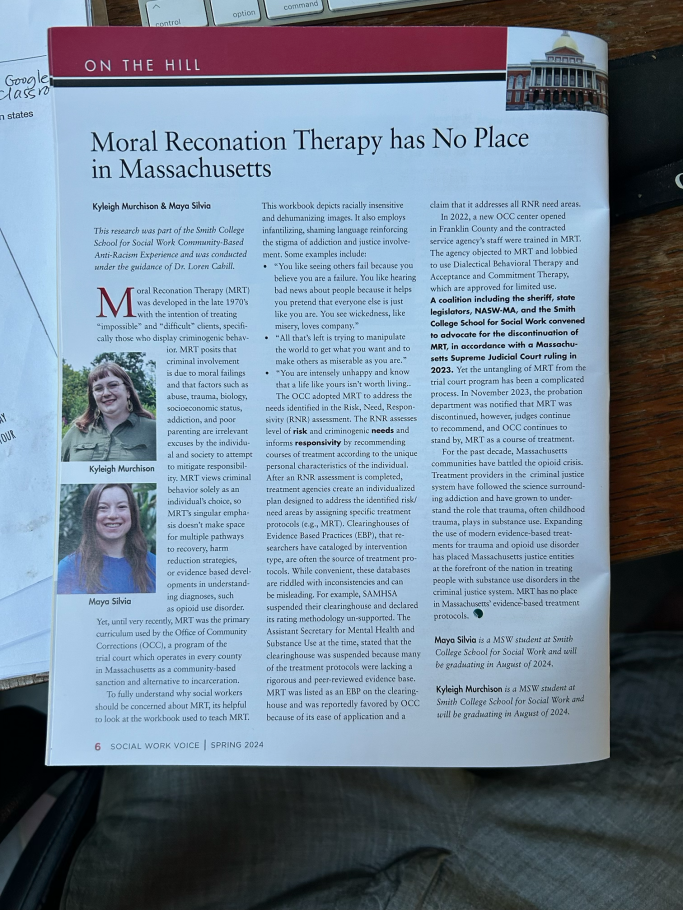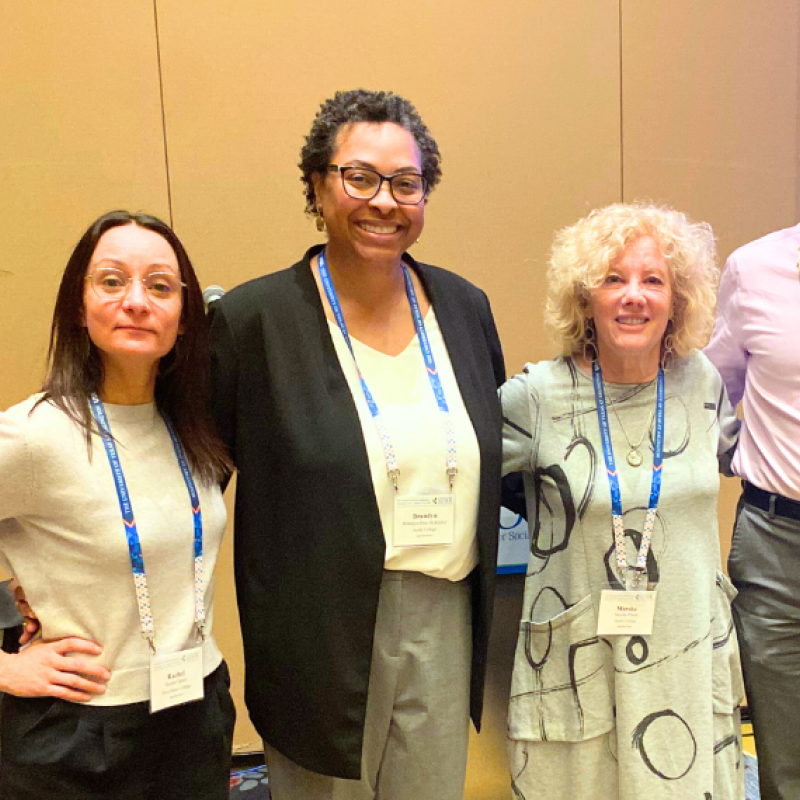
Since last fall, Kyleigh Murchison and Maya Silvia, both M.S.W. ’24, have been meeting virtually with Levin Schwartz, M.S.W. ’11, as part of their Community-Based Anti-Racism Experience (CBARE). Schwartz is the assistant superintendent of Clinical & Reentry Services in the Franklin County Sheriff’s Office (FCSO) in Greenfield, Massachusetts. The mindfulness-based treatment program he co-developed and implemented for the Franklin County Jail has received widespread recognition.
Their discussions focused on Moral Reconation Therapy (MRT), a treatment protocol widely used by the Office of Community Corrections in Massachusetts. One of the outcomes of their CBARE work is that as of May 2024, Murchison and Silvia will have their first byline in a professional publication as co-authors of “Moral Reconation Therapy Has no Place in Massachusetts.”

Appearing in Social Work Voice, a National Association of Social Workers-Massachusetts Chapter (NASW-MA) newsletter, the article makes a strong case against the protocol. For starters, it cites problematic statements from the MRT participant workbook, such as, “You like hearing bad news about people because it helps you pretend that everyone else is just like you are. You see wickedness, like misery loves company.”
Murchison and Silvia explain how the evidence for MRT’s official acceptance is inconclusive, and describe how a coalition that included FSCO, state legislators, NASW-MA representatives and SSW succeeded in having the Massachusetts Supreme Judicial Court discontinue its use in the Bay State in August 2023.
Schwartz was a key member of the coalition; among his efforts was writing a paper on MRT presented at a July 2023 legislative briefing. He has long argued that it is an outdated protocol that ignores how racism, trauma, addiction, abuse, socioeconomic status and other factors influence criminal behavior. Instead, MRT shames incarcerated people, labeling them as moral failures.
Having interned as an undergraduate in Maine State Prison, Murchison saw working with Schwartz as the “perfect opportunity” to further her desire to disrupt the carceral system. “My big dream,” she said, “is someday to open a post-incarceration substance-abuse treatment center.” Previously unfamiliar with carceral issues, Silvia said what she learned was “eye-opening and shocking,” and has led her to take the SSW criminal justice elective this summer.
Murchison took the lead in doing the writing; Silvia did extensive research and edited Murchison’s drafts. “Getting started,” Murchison said, was the hardest part of the writing process. For Silvia, organizing information and staying within the word limit proved challenging. Both found maintaining a neutral voice hard at times. “I tended to get fired up about the subject, but I knew we had to stick to the facts and phrase things in a neutral way,” said Murchison.
Producing the article, they agree, was very rewarding. “I feel a lot of people don’t know about MRT, so it was important to draw attention to it,” said Silvia. “I also think that people being educated to be social workers don’t necessarily learn about the criminal justice system. It’s not an area that is incorporated into the curriculum, in training, or internships, so I was glad to have that opportunity.”
“It felt palpable; I felt like I did something,” said Murchison. Overall, CBARE was so valuable, she said. “It showed me ways to interrogate whiteness, to incorporate anti-racism into social work, to bring everything together.”


